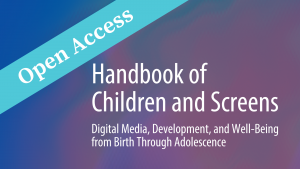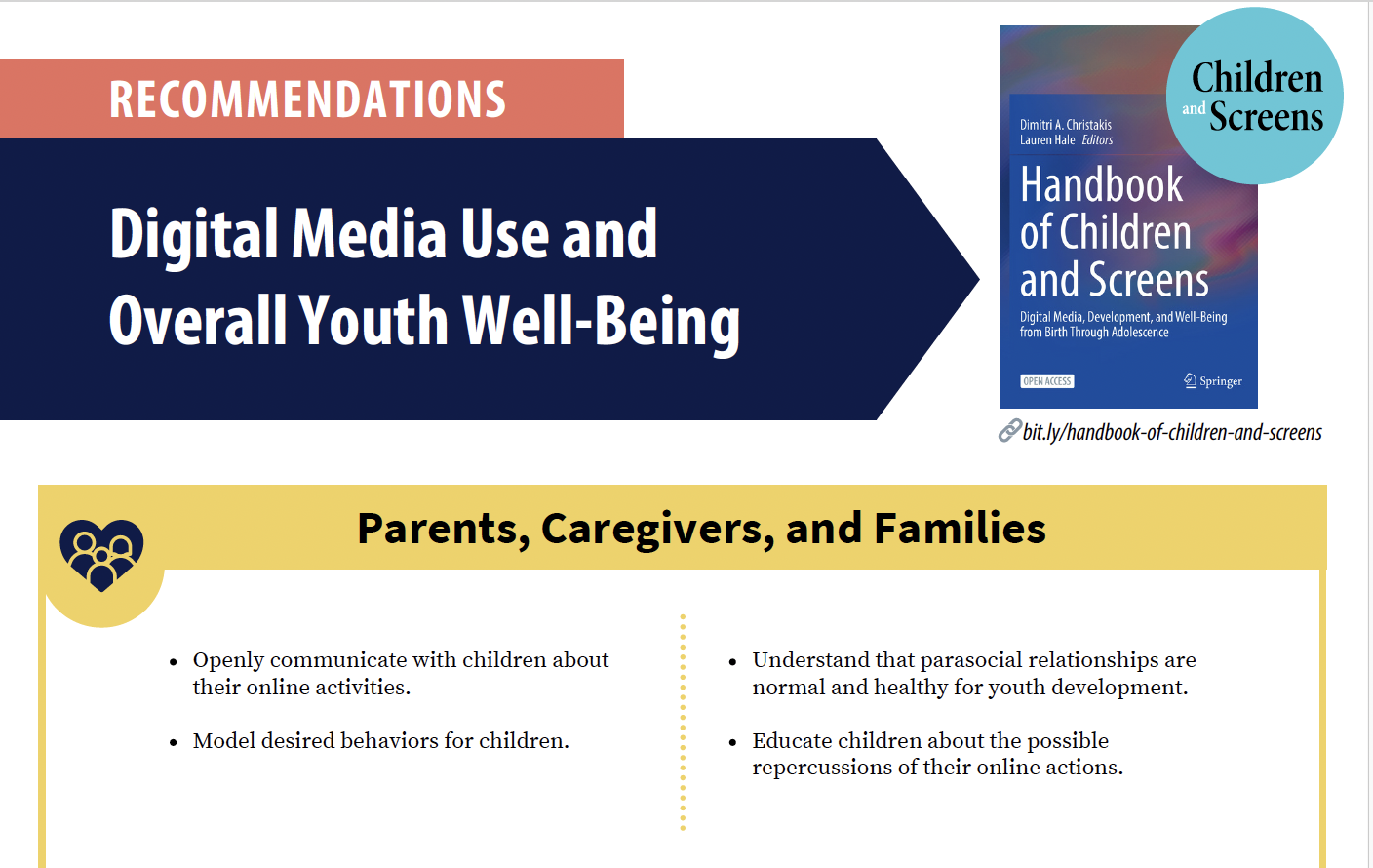
The ways children socialize have shifted with access to new technologies. Because of the convenience and novelty these devices offer, children are spending more time communicating with each other virtually and less time interacting face-to-face. While the negative aspects of these changes have been considered extensively, less is known about how the digital world can potentially enhance youth well-being. This section of “Handbook of Children and Screens: Digital Media, Development, and Well-Being from Birth Through Adolescence” highlights research exploring the modalities youth use for online communication and community building, and how these positive uses can benefit well-being. Benefits include identity development (particularly for marginalized youth), civic engagement opportunities, and chances to extend empathy and kindness. The authors for this section of the handbook acknowledge, however, that youth need safe online environments and the necessary skills to experience these potentials.
Recommendations [ALL]
The following recommendations are excerpts from the "Youth Digital Wellbeing" section of the “Handbook of Children and Screens: Digital Media, Development, and Well-Being from Birth Through Adolescence." This open access publication is free to download in full or by individual chapters via the links provided following the recommendations below.
- Ask children directly about their experiences with digital media.
- Frame digital media as a tool that can foster both positive and negative outcomes.
- Discuss the pros and cons of digital self-presentation with youth.
- Openly communicate with children about their online activities.
- Model desired behaviors for children.
- Understand that parasocial relationships are normal and healthy for youth development.
- Educate children about the possible repercussions of their online actions.
- Understand how to support youth with social and emotional skill-building.
- Create and implement digital literacy programs.
- Encourage youth to think critically about the benefits and risks of digital self-presentation.
- Embrace controversial topics in the classroom and encourage civic media literacy.
- Build partnerships with youth organizations.
- Understand the potential repercussions of online actions.
- Make online communication choices that fit needs and values.
- Create and participate in peer support groups for navigating digital media.
- Implement regulations that promote children’s safety and well-being online.
- Hold social media companies accountable for designs that negatively impact youth.
- Require digital media companies to share data with independent researchers.
- Share educational campaigns that highlight the benefits and risks of children’s digital media use.
- Promote positive online experiences through mindful designs and ethical AI.
- Collaborate with youth, particularly minorities, to develop youth-centered designs.
- Encourage journalists to communicate both positives and negatives of youth digital media use.
- Explore youth experiences with online self-presentation in the context of identity intersections.
Youth Digital Wellbeing Section Chapters
Introduction to the Section on Youth Digital Wellbeing
Katie Davis, EdD, and Linda Charmaraman, PhD
Adolescents’ Online Communication Practices in a Digital World
Yalda T. Uhls, PhD, MBA, Amber van der Wal, PhD, Nicole Ellison, PhD, Anne Collier, MA, Kaveri Subrahmanyam, PhD, Patti M. Valkenburg, PhD
Youth Digital Wellbeing and Social Connectedness
Linda Charmaraman, PhD, Jacqueline Nesi, PhD, Stephen M. Schueller, PhD, Sophia Choukas-Bradley, PhD, J. Maya Hernandez, PhD, Katie Davis, EdD
Empathy, Kindness, and Dignity in a Connected World
Carrie James, PhD, Anne Collier, MA, Katie Davis, EdD, Sara Konrath, PhD, Tijana Milosevic, PhD, Elizabeth Milovidov, JD, PhD, Elisabeth Staksrud, PhD, Emily Weinstein, EdD
Parasocial Relationships in Children and Teens
Bradley J. Bond, PhD, Karen Dill-Shackleford, PhD, Jayson Dibble, PhD, Tracy Gleason, PhD, Nancy Jennings, PhD, Sarah Rosaen, PhD, Rebecca Tukachinsky Forster, PhD
Online Self-Presentation and Identity: Insights from Diverse and Marginalized Youth
Chia-chen Yang, PhD, Angela Calvin, PhD, Sophia Choukas-Bradley, PhD, Koen Leurs, PhD, Adriana Manago, PhD, Kaveri Subrahmanyam, PhD
Youth Participatory Politics: Understanding and Supporting Civic Engagement in the Social Media Era
Ellen Middaugh, PhD, Mariah Kornbluh, PhD, Ashley Lee, PhD, Neta Kligler-Vilenchik, PhD, Srividya Ramasubramanian, PhD, Lynn Schofield Clark, PhD, Tanner Vea, PhD






